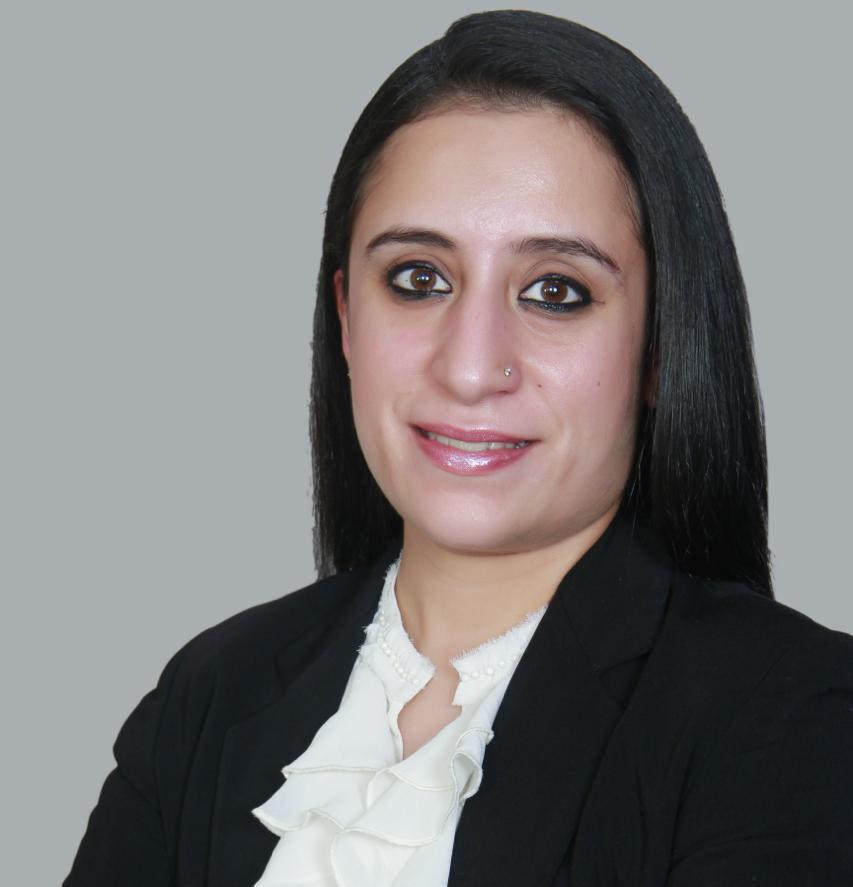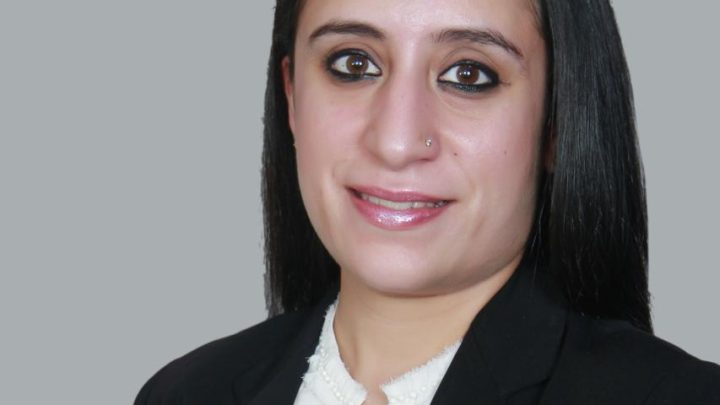Interviews
12587
0
0
“For legal professionals looking to transition into recruitment, my advice is to cultivate a balanced blend of technical legal expertise and strong interpersonal skills.” – Samridhi Kapur, Senior Consultant(Legal Recruitment) at Yellow Wire Consulting.
This interview was taken by SuperLawyer Team
Posted on March 15, 2025
This interview has been published by Anshi Mudgal and The SuperLawyer Team

With over a decade of experience in the legal field, what initially motivated you to pursue law as a profession? Was it a deliberate decision, or did it unfold naturally over time?
I took up law because I have always been driven by a deep sense of justice and an innate curiosity about society. From an early age, my fascination with sociology and history opened my eyes to the ways in which laws shape communities and uphold fairness in everyday life. From class 10, I participated in several mock tests that not only sharpened my critical thinking skills but also provided a glimpse into the analytical rigor required in legal studies. These experiences helped me understand that law was not merely an academic discipline—it was a tool for societal transformation and a means to champion fairness. This early foundation instilled in me a commitment to pursue a career where I could contribute meaningfully to upholding justice and influence positive change, a passion that continues to inspire my work every day.
Why did you shift your focus from traditional litigation to legal recruitment and how have your experiences at your previous organization influenced your approach to recruitment?
I began my career in 2013 working with an Advocate on Record, and later had the opportunity to collaborate with esteemed lawyers at the Hon’ble Delhi High Court. After five years of invaluable experience, I took the leap into independent practice, primarily serving clients from the IT industry. My focus areas included contract and agreement drafting, negotiations, arbitrations, and litigation. Working alongside Senior Advocates provided me with exposure to high-stakes litigation and complex arbitrations. Observing their dedication, commitment, and in-depth research reinforced my understanding of what it takes to achieve the prestigious status of a designated Senior. Those years were instrumental in shaping my professional perspective and instilling a strong work ethic that I continue to value.
Over time, while I honed my legal skills in litigation and independent practice, I began to notice a recurring theme: the success of legal teams often hinges not just on individual prowess, but on the collective strength and fit of the team itself. My experience at a US-based IT company, where I served on the core committee alongside HR managers and the country head, exposed me to a more strategic view of talent management. I learned firsthand the importance of aligning a candidate’s technical expertise with the broader cultural and operational needs of an organization. This exposure illuminated the critical role that legal recruitment plays in bridging the gap between raw legal talent and the strategic objectives of law firms.
Realizing that my background in high-stakes litigation and rigorous legal analysis could be leveraged to identify and place the right talent, I made a deliberate shift from traditional litigation to legal recruitment. I saw an opportunity to combine my comprehensive legal experience with the strategic insights gained from corporate talent management to create a more nuanced, client-focused recruitment process. Today, at Yellow Wire Consulting, I use my in-depth understanding of legal practice to evaluate candidates not just on their technical qualifications but also on their potential to contribute to the unique culture of a firm. This integrated approach ensures that every placement supports both immediate operational needs and long-term organizational growth, reinforcing the idea that a well-matched team is the cornerstone of sustained success.
Can you describe how your role has evolved since joining Yellow Wire Consulting and the impact its leadership has had on your growth?
Since joining Yellow Wire Consulting, my role has evolved significantly from a conventional recruiter to a strategic talent acquisition leader. Under the guidance of our founder, Ms. Sarabjeet Kaur, I have been encouraged to look beyond traditional placement methods and develop a holistic recruitment model. Her visionary leadership has been pivotal in reshaping our approach, emphasizing that recruitment is as much about understanding a firm’s cultural and strategic needs as it is about evaluating technical skills. I have had the opportunity to engage in extensive market research, develop comprehensive HR manuals, and lead soft skills training initiatives that prepare both candidates and client organizations for long-term success.
This transformation in my role has allowed me to integrate my legal expertise with innovative recruitment strategies, ensuring that every candidate placement is not only a match on paper but also aligns with the broader vision and values of the client firm. The evolution of my responsibilities has led to a more proactive and adaptable strategy, one that is continually refined based on feedback, market trends, and the dynamic needs of the legal industry.
What key elements do you focus on during the recruitment process to ensure the right match between candidates and client firms?
At the heart of my recruitment process is a commitment to deep understanding and precision. I begin with detailed consultations with client firms to uncover both the explicit technical requirements and the subtle cultural dynamics that define their work environment. This involves engaging in comprehensive discussions with hiring managers and HR leaders to capture the unique values and operational nuances that make each organization distinct. Following this, I implement a rigorous assessment framework that evaluates potential candidates on multiple dimensions—ranging from their legal expertise and professional demeanor to their adaptability and interpersonal skills.
Every candidate is considered holistically, ensuring that the match goes beyond technical qualifications to include a genuine cultural alignment. This integrated approach is continuously refined by incorporating direct client feedback and current market research, allowing me to minimize mismatches and promote long-term retention. Ultimately, my goal is to create placements that serve as strategic partnerships, fostering enduring relationships that contribute to the sustained growth and success of both the candidate and the firm.
In the competitive landscape of legal recruitment, what challenges do you encounter, and how do you address them?
The competitive nature of the legal landscape presents several challenges, chief among them being the need to balance the often-divergent expectations of client firms and candidates. Many firms are primarily focused on technical proficiency and proven legal acumen, while candidates increasingly seek roles that align with their personal values, career aspirations, and desired work-life balance. This divergence can lead to mismatches if not carefully managed. To address these challenges, I have refined my recruitment strategies to adopt a more holistic evaluation framework. My approach involves conducting extensive, multi-layered interviews and competency assessments that go well beyond conventional metrics. I invest significant time in understanding the cultural fabric and strategic objectives of each client firm, which allows me to communicate effectively with candidates about the true nature of the roles on offer.
Additionally, I maintain an ongoing dialogue with both clients and candidates throughout the recruitment process, ensuring that expectations are continually aligned. By leveraging continuous market insights and detailed feedback, I have been able to adjust my methods dynamically, ensuring that our placements are sustainable and mutually beneficial in an environment where the stakes are high and competition is fierce.
What advice would you offer to legal professionals aspiring to transition into recruitment and management?
For legal professionals looking to transition into recruitment, my advice is to cultivate a balanced blend of technical legal expertise and strong interpersonal skills. It is essential to have a thorough understanding of the legal landscape, including the operational dynamics of law firms and the broader judicial ecosystem. This technical foundation enables you to assess candidate qualifications accurately and understand the complex needs of client organizations. Equally important is the ability to communicate effectively, listen attentively, and approach each recruitment challenge with empathy and strategic insight. Skills such as critical thinking, strategic foresight, and an eye for both technical and cultural fit are indispensable.
I encourage aspiring recruiters to engage in continuous learning—staying updated with industry trends, seeking out professional development opportunities, and building robust networks. Ultimately, success in legal recruitment depends on your ability to build trust-based relationships and create synergistic matches that benefit both the candidate and the firm in the long run. Embracing this dual focus on legal acumen and human connection will enable you to navigate the complexities of the field and contribute significantly to building strong, cohesive legal teams.
Could you share a memorable project from your professional journey that significantly shaped your approach to legal recruitment and reaffirmed your commitment to excellence?
One defining project in my career bridged my early litigation experiences with my current focus on legal recruitment. Early on, while working with an Advocate on Record and at the Hon’ble Delhi High Court, I learned the value of rigorous analysis and dedication. Later, during my independent practice serving IT clients, I recognized that building cohesive teams was essential for success.
This realization became even more pronounced when I spearheaded a comprehensive project, wherein our aim was not just to fill open positions but to create enduring, value-driven relationships between efficient legal professionals and a leading law firm. I led an in-depth consultation process with multiple client firms to meticulously map out their strategic objectives, work cultures, and long-term visions. By drawing on my extensive background in litigation and independent practice, I was able to identify candidates whose legal acumen, soft skills, and personal aspirations perfectly resonated with the unique needs of the firm.
Moreover, this project involved developing customized HR guidelines and targeted soft skills training sessions to ensure that candidates were well-prepared to integrate seamlessly into their new roles. The tailored approach we adopted resulted in placements that not only enhanced the operational capabilities of legal teams but also fostered lasting professional relationships and improved team synergy. Witnessing the tangible impact—from enhanced legal operations to the sustained growth of both candidates and firms—was immensely gratifying. This experience has profoundly reaffirmed my belief in a holistic, client-centric recruitment strategy that has been a cornerstone of my journey from the courtroom to legal recruitment.
With the fast pace of the legal industry, how do you and your team maintain a healthy work-life balance while driving innovation?
While we work in a demanding environment at Yellow Wire Consulting, we strive for a practical balance between professional responsibilities and personal well-being. Recognizing that the legal industry often requires long hours and focused dedication, we implement clear work processes and regular check-ins to manage our workload efficiently. Rather than promising complete flexibility, our approach emphasizes realistic scheduling, open communication, and setting clear expectations. Under the guidance of Ms. Sarabjeet Kaur, our team is encouraged to recognize when to take a break and to support one another during busy periods. We focus on efficient scheduling and encourage team members to take necessary breaks to avoid burnout. It’s more about realistic adjustments, addressing workload issues as they arise and supporting one another through busy periods. This straightforward approach helps us stay productive and deliver quality candidates for law firms, without compromising our overall well-being.
Get in touch with Samridhi Kapur –







No comments yet
Be the first to share your thoughts about this interview.